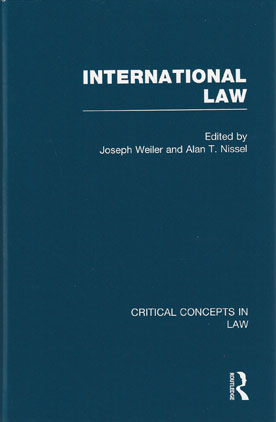
Throughout recorded history, rulers of states, kingdoms, or other political entities have entered into treaties with each other for the purposes of ending or averting violent conflict. However, the formation of the United Nations in 1945 created a means for the world community to enforce international law upon members that violate its charter.
The trend towards multilateral commitments has accelerated since then, and it is now meaningful to study international law as a means towards resolving conflicts among states.
Traditionally, states were the sole subjects of international law, but recent interpretations of international human rights law, international humanitarian law, and international trade law have been inclusive of corporations and even individuals.
This long-awaited Routledge collection brings together canonical and the very best cutting-edge works on International Law to provide both classical and contemporary perspectives on a rapidly developing subdiscipline.
The gathered materials, carefully selected by Joseph Weiler (Editor) and Alan Nissel (Associate Editor), represent traditional approaches, as well as those that rethink the international legal system.